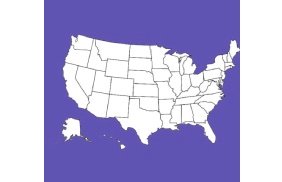Kaufman & Canoles
The 2018 Farm Bill, officially known as the Agriculture Improvement Act of 2018, is a comprehensive piece of legislation that governs agricultural and food policy in the United States. One of the key provisions of the 2018 Farm Bill is the legalization of industrial hemp, which is defined as cannabis plants with a delta-9 THC concentration of no more than 0.3%. The legalization of hemp led to rapid development of a variety of hemp-derived cannabinoids, some intoxicating and some not. One particular version, THC acetate, or THC-O, was recently determined by the Drug Enforcement Agency (DEA) to be a controlled substance and illegal under federal law.
What is THC-O?
THC, or tetrahydrocannabinols, are a type of cannabinoid found in the cannabis plant that is generally responsible for the psychoactive effect associated with marijuana use. The most widely known is delta-9 THC. THC Acetate, or THC-O, is a relatively new variant of THC that, rather than occurring naturally in hemp, is understood to be 100% synthetically derived. This subtle but important distinction sets it apart from other, naturally occurring cannabinoids like CBD or other tetrahydrocannabinols like delta-9 THC or even delta-8 THC. For comparison, despite that delta-8 THC is typically synthesized to increase the naturally occurring amount found in the hemp plant, the DEA previously determined that if delta-8 THC products are derived from the hemp plant they are not a controlled substance and, therefore, permissible.
Why did the DEA determine that THC-O is illegal under the Farm Bill?
Simply put, THC-O is a controlled substance because it is not naturally occurring and not derived from the hemp plant. Because THC-O is a laboratory creation and a fully synthetic cannabinoid, it does not meet the definition for hemp’s exclusion from the federal Controlled Substance Act. This means that under federal law it is illegal to manufacture, distribute, or possess THC-O, just as it is illegal to possess traditional marijuana.
The 2018 Farm Bill specifically legalizes industrial hemp, which is defined as the cannabis plant with a delta-9 THC content of no more than 0.3%. So, while it is true that THC-O products typically contain no more than the allowable amount of delta-9 THC, the Farm Bill also provides that synthetically derived tetrahydrocannabinol remains classified as a schedule 1 substance and cannot be legally grown and sold as industrial hemp. For this reason, THC-O now likely joins the category of other “fake weed” synthetic cannabis compounds considered illegal by the DEA like Spice, Kronic, Northern Lights, K2 and Kaos.
What are the implications of THC-O’s legal status?
Following clarification from the DEA on February 13, 2023, in response to direct inquiry from North Carolina attorney Rod Kight, hemp processors and retailers should be on notice that criminal charges could result for the possession, distribution, or sale of THC-O. Those in the industry should carefully review their product lines to ensure that they are not carrying items containing THC-O and are otherwise in compliance with all state and federal regulations. Especially in states like North Carolina where marijuana remains illegal, the risk of criminal prosecution is high so consultation with an experienced attorney is recommended if you have questions about how to successfully navigate compliance issues and implement best practices.
Source:
https://www.jdsupra.com/legalnews/dea-determines-thc-o-illegal-under-1389726/





